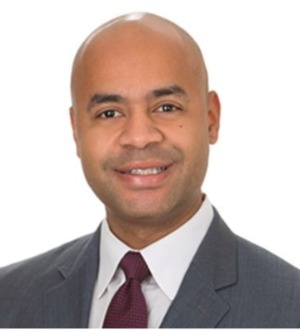Sharing is Caring: DOL Expands Tip Pool and Dumps 80/20 Rule
Note - the Department of Labor has issued a Notice of Proposed Rulemaking proposing to delay the effective date of this rule to December 31, 2021.
Executive Summary: On Tuesday, December 22, 2020, the U.S. Department of Labor (DOL) announced its final rule regarding expansion of tip pool sharing and limitations on the 80/20 rule. This long-awaited final rule codifies three main points: employers are (1) permitted to include “back-of-the-house” employees who usually do not receive tips (such as cooks and dishwashers) as part of a tip pool, (2) prohibited from allowing management from keeping employees’ tips or participating in tip-pooling arrangements, and (3) permitted to take a tip credit regardless of the amount of non-tip generating work (such as cleaning tables or rolling silverware) a tipped employee performs as long as it is performed contemporaneously with his/her tipped duties, or within a reasonable time immediately before or after performing tipped duties.
Background: After Congress passed the Consolidated Appropriations Act 2018, which amended Section 3(m) of the Fair Labor Standards Act (FLSA), employers have been waiting for the DOL to issue a final rule on the tip pooling amendments and tip credit applications (the DOL proposed a new rule on October 7, 2019, but had not issued a final rule). Under the existing rules, employees are entitled to receive at least the federal minimum wage from their employers. However, the FLSA allows employers to apply a “tip credit” towards reaching that direct minimum wage amount by counting a limited amount of tips from their tipped employees. These “tipped employees” are those who customarily and regularly receive more than $30 per month in tips. But if the tipped employee engages in non-tip generating work, like cleaning and prep work, for more than 20 percent of the shift, that employee is entitled to the full direct payment of the federal minimum wage without tip credit deductions.
Current federal law requires tipped employees retain all their tips unless their tips are distributed through a valid tip pool. Those allowed to share in the tip pool are limited to tipped employees, regardless of whether their employer uses a tip credit as part of their compensation. Currently, a tip pool may not, “for any purposes,” include employers, “including allowing managers or supervisors to keep any portion of the employees’ tips.”
The New Rule: The final rule expands the tip pool for employers who do not take a tip credit. Back-of-the-house employees, who do not traditionally receive direct tips, are permitted to participate in and receive a cut from the tip pool. The DOL explained back-of-the-house “employees [also] contribute to the overall customer experience, but may receive less compensation than their traditionally tipped co-workers.” The DOL stated that it hopes this change will “help decrease the wage disparities” between the traditional tipped and non-tipped workers—an issue that many employers are battling with in trying to fill back-of-the-house positions.
The final rule also amends the DOL’s tip regulations to coincide with the 2018 amendment to Section 3(m) of the FLSA which prohibits employers from keeping tips received by their employees, regardless of whether the employer takes a tip credit or not.
The final rule also codifies the DOL’s recent guidance which states that employers may apply a tip credit irrespective of the amount of time that a tipped employee performs non-tip generating work during the shift, so long as the work is performed “contemporaneously with” the employee’s tipped duties, “or for a reasonable time immediately before or after performing the tipped duties.”
Employers’ Bottom Line: Employers who do not take a tip credit may be able to make back-of-the-house positions more attractive by allowing those employees to receive additional income through tips. Although employers should consider the laws of the states in which they do business and whether they have adopted any rules similar to or more stringent than the proposed federal 80/20 and tip pooling rule. The DOL’s final rule does not go into effect until 60 days after its publication in the Federal Register (approximately February 20, 2021). Also, there is a strong chance that the Biden administration will seek to roll the implementation of these new rules back and begin working on producing its own amendments. For now, employers should keep things business-as-usual and watch for any updates in the upcoming months.
If you have any questions regarding this issue or other wage and hour issues, please contact the authors of this Alert, Luis Santos, lsantos@fordharrison.com, partner in FordHarrison’s Tampa/Orlando offices. You may also contact any member of FordHarrison’s Restaurant Industry or Wage/Hour practice groups or the FordHarrison attorney with whom you usually work.




















